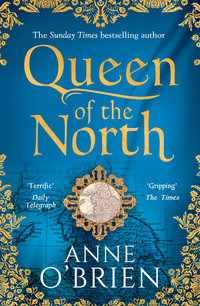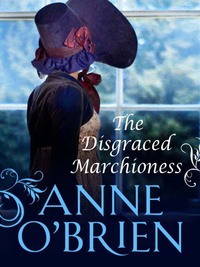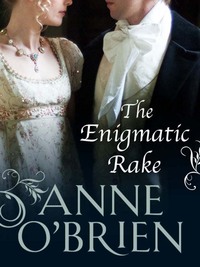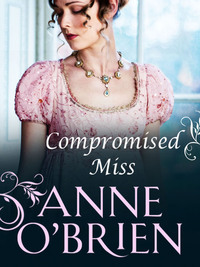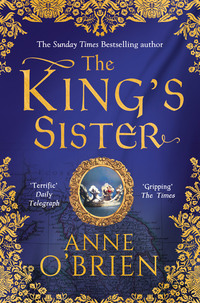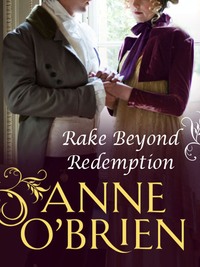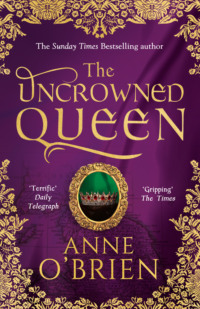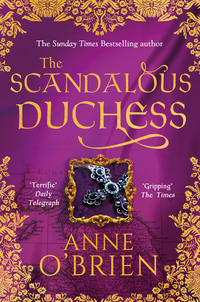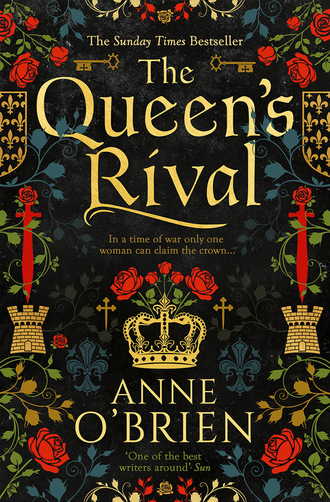
The Queen’s Rival
But what if, in the process of flight, they were recaptured? A fast beheading outside the walls of our own castle? There would be no trial, no recourse to the King’s mercy. Even now Richard might be in Lancastrian hands, facing death.
All is quiet both within and without the castle. But so is death silent. Silent as the grave. Richard and my two eldest sons might already be bodies, stripped and humiliated on public display.
Why had he not taken me with him?
I trust my courage will run as freely as this ink on my pen.
I am here alone because I am the keystone. I am the one firm guiding hand to hold all in place until better times. Easy to fly like a mallard from the nest when a fox comes prowling. Richard trusts me to remain to care for those in need, to speak out for our people’s interests. If I had ridden with him, if we had all fallen into enemy hands, the House of York would have been obliterated in the blink of an eye, in a fit of mad revenge for the bloodshed at the battles of St Albans and Blore Heath. What if we had made it to the coast to take ship? Any whirlwind storm to sink our vessel and we would all lie, bones stripped of flesh by fish, at the bottom of the sea.
Now I must brace myself, forcing my shoulders to bear the burden placed on them. Here are the remaining children who are the hope of York, under my care. Meg, who will grow to make a profitable alliance with a European Prince, George who will be the heir to the dukedom if his brothers suffer misadventure, Diccon with all his fervour.
And here am I, to guard and guide them. I must pray that in their youth they will not be held responsible for their father’s sins.
Nor, I pray, will I.
I cannot take you with me because you are needed here, Richard had whispered at the end, answering the question that I had never asked. I have trusted you all my life. You are my heart and my soul and my right hand. I need you to stay here to hold all I have of value. I need you to hold fast to all that I am forced to abandon. I swear that I will return and take up my heritage once more, but I need you to keep the name of York alive in the minds of our friends and allies. And our enemies. Our heritage must not be allowed to die through lack of tending. Will you do it for me?
I had placed my fingers on his mouth to still his words. Such faith he had in me, and I would hold fast to it. There would be no further destruction of the House of York under my watch.
A record of the sons and daughters of Richard, Duke of York, and Cecily Neville
I have instructed my clerk to make this record. His hand is more legible than mine. In these days of uncertainty, our marriage and the fruits of it must be put on record. For those who may wish to know, I give my signature and my solemn oath before our priest, here at Ludlow, that these are the true offspring of Richard Plantagenet Duke of York and myself, Cecily Neville.
The document will be kept in the sacred safety of the Church of St Mary the Virgin at my beloved Fotheringhay.

Anne born at Fotheringhay on the tenth day of August in the year 1439 Henry born at Hatfield on the tenth day of February in the year 1441; died Edward born at Rouen on the twenty-eighth day of April in the year 1442 Edmund born at Rouen on the seventeenth day of May in the year 1443 Elizabeth born at Rouen on the twenty-second day of April in the year 1444 Margaret born at Fotheringhay on the third day of May in the year 1446 William born at Fotheringhay on the seventh day of July in the year 1447; died John born at Neyte on the seventh day of November in the year 1448; died George born at Dublin on twenty-first day of October in the year 1449 Thomas born at Dublin on fourteenth January in the year 1451; died Richard born at Fotheringhay on second day of October in the year 1452 Ursula born at Fotheringhay on twentieth July in the year 1455; died

How much joy and sorrow is recorded here. The joy I may acknowledge in my sons and daughters who grow with health and vigour to enter into their own marriages, to raise their own children for the future greatness of England.
The sorrow I keep hidden close in my own heart. Richard knows of it, but it is not to be discussed since it brings grief to both of us. So many dead within a year of their birth.
There will be no more children now. Age has placed its withering hand on my womb.
Here is my testimony to my love for Richard and his love for me.
It is a testimony also to my sorrow.
The last will and testament of Cecily, Duchess of Neville
Made and witnessed by our priest, this twelfth day of October in the year 1459
In the event of my death (I pray that it will not happen) in the aftermath of the battle that never came to pass at Ludford Bridge:
I give the care of my younger children, Margaret, George and Richard, into the safe hands of Humphrey, Duke of Buckingham, my sister’s husband. He is a man of integrity who will guard and guide them until their father is able to return. I ask that he will protect them from the waspish tongue of my sister. They do not deserve any degradation.
To my sister Anne, Duchess of Buckingham, I bequeath the rosary-beads that she covets made with white-amber gold and coral. There are two strings. I pray that she uses them well to make petition for my soul.
To my serving women I give my jewels to be distributed amongst them in my memory. I owe them much for their past loyalties. They will find them buried beneath the floor in the stables, placed there in case of a Lancastrian sack. My Steward knows of their whereabouts.
I give all the remaining property belonging to me in Ludlow Castle, including all my books if they survive the coming pillage, which is debatable, to the parish church of St Laurence in Ludlow, to be sold and the money given to the poor who I fear will suffer greatly when the Lancastrian troops are let loose on them.
Finally, to the Queen I give a silver pyx containing the flesh of Saint Christopher. I pray that the Queen’s eyes will be opened by this Holy Martyr who, patiently, gave his life to the service of Christ. I pray for her selfless devotion to the needs of this war-torn land. She will need more patience than I have to manage her increasingly fragile husband.
I wish my body to be buried in the Church of St Mary at Fotheringhay, and leave money for that purpose. No other place will do, whatever my family might say.
Signed and witnessed on this day,
Cecily, Duchess of York
Duchess Cecily faces the sack of Ludlow, the thirteenth day of October 1459
I rose with the dawn, knowing in my head and in my heart that this would be a day of danger. As soon as the final blessing was administered by my priest at Mass, I had my sons and daughter stand with me before the altar in the chapel. Hastily clad in funereal severity, this was a time for utmost respect and solemnity; no jewels, no outward show, no ostentation. We could be in dark-clothed mourning, as black as the clouds that seemed to enwrap the Ludlow towers.
‘Whatever happens today, you will remember that you are my children. You are the figureheads of the House of York.’ I spoke calmly, sternly. Here was no occasion to stir panic. ‘Any man who looks at you, whatever his status, whatever his standing in life or the state of his soul, he will see honour and pride and duty to a noble cause. He will see your royal blood shining through whatever trials we are called upon to face. Do you understand me?’
They were so young, but they could still carry out this task. Whatever befell us I would have them stalwart in their demeanour. I tried not to imagine the effects of a marauding army in the town. It might not come to that, but to be forewarned was to be forearmed, and I would have no weakness.
‘You will do what I say. If I send you on an errand you will go without question.’ I could think of any number of eventualities when I would need them to be obedient.
‘Has Father left us?’ asked George.
‘He has gone because he must. He will return with help to rescue us if we need rescuing. Until then we will hold this castle in our proud name. You will all be very brave.’
I saw to it that they broke their fast and drank a cup of ale. I kissed each one.
‘Never forget that you are well loved.’
Then we waited. Beyond our sight our army would discover the disaffection of their leaders, their empty tents, the abandoned banners. In the cold light of day it was hard to make an excuse for it but I understood. I must understand. As for my own strategy, it was difficult to construct since the next few hours would be as formless as a shadow in a deep well. It would depend on the outcome of King Henry’s response. I returned to the question. What would happen when Richard’s army found itself leaderless?
Kneel for mercy if it had any sense.
Three hours after dawn the noise of a rampaging force began as a distant threatening hum, growing in strength until I could not deny it. Henry had loosed his troops to take revenge on a town that would have stood in defiance. But our walls and towers and gates would hold. To the north the River Teme and steep crags and the Mortimer Tower would protect us. Leaving the children in the sanctuary of the chapel, I climbed to the top of the great keep, to look down between the crenellations. The sight stunned me.
There were soldiers, an unruly mass of them.
They were running across the outer bailey. The gates from the town had been opened. Word had spread, as it assuredly would, that the Duke of York had betrayed the men of our garrison. Demoralised, some of our troops had opened the gates and let in the royal army. Below me I heard the sound of the bars on the inner gates being lifted too, to allow access into the private chambers. Within minutes this mob would be occupying my castle, my home. I could do nothing to stop them.
Face them? I must. But could I protect any one of my household from a howling mob? I knew the limitations of my own authority when authority had been cut off at the knees. I descended, taking little account of the steepness of the stairs, until at the bottom my path was barred by one of our garrison. But where were his loyalties now?
‘Let me pass,’ I commanded, as if I had all the confidence in the world.
‘I have come to find you, my lady. Though where would be best for your protection, I know not.’
He was loyal. I felt my momentary terror subside.
‘Do you know what happened to our army?’
‘The King demanded their obedience, my lady. They knelt before him and asked for mercy, which he gave well enough, his quarrel not with ordinary soldiers. By God, any number of them have joined the royal troops that are laying waste to the town.’
‘And to my castle. Get me through this rabble to the chapel where the children wait.’
There, beneath the arch of the chapel door, we stood at bay. I could not stop them; I did not try. These were the memories that would haunt me for ever, battering at me as I held the hands of Diccon and George, Meg standing with her fingers clasped on George’s shoulders to pre-empt any courageous idiocy. All my senses seemed to be drenched in icy cold, but I would stand firm as I watched the destruction of my home.
Some captain of the King’s army beat a knot of soldiers away.
‘No reprisal against her,’ he ordered.
‘She’s the Duchess. Wife of a traitor. Those are traitor’s brats.’
‘We don’t wage war on the Duchess of York. King’s orders.’
A momentary relief laid its hand on me, but how long such chivalry would last I knew not.
‘I advise you not to draw attention to yourselves,’ the captain growled. ‘Go into the chapel.’
‘I will not. If my home is to be made a ruin around me, I will bear witness to it.’
‘You’re a brave woman, lady.’
I did not feel brave.
As the rape of our castle raged on, I turned my sight inwards so I might not see my property, my clothing, my furniture, my finely stitched tapestries, all the precious items of my personal existence, being carried past me. The vestments and chalices from the chapel followed, clutched in filthy and disrespectful hands. But I did see them, anger building within me. Everything I had loved and cherished and valued was stripped away. All I could think as the morning passed: would they fire the buildings? They were too intent on looting. They were too drunk on their success, but when their rapaciousness was sated, might they not light their torches and burn my home to the ground? Had the London mob not destroyed my grandfather’s Savoy Palace until not one stone was left standing on another?
All that day it went on, a seething mass of hatred and greed, until they trickled out to join their fellows in the town. While I, wearing a heavy cloak cast over all, prayed that it would disguise the fact that I was shivering with a fear I dare not show. My sons must learn to face adversity with a strong heart.
Leaving my despoiled home, I went out into the town where I stood at the market cross to see the fate of Ludlow for myself. The children were still with me. They must see and experience the terror of an army, frenzied and without discipline, tearing itself and its fellow citizens apart.
The sight stopped my breath. The boys drew close. Margaret slid her hand within mine. The horrors of a sack were beyond words, the town robbed to the bare walls, pillaged and befouled. The streets stank with drink and vomit that seemed to lap against my shoes and soak my hem. Houses of merchants had been raided, broken items of furniture and pottery shards littering the streets.
No one touched me or my children. We stood there in that monstrous voicelessness of a town shattered beyond repair. Even the birds were stricken silent. Then the evening was rent by the wailing of a child, followed by voices raised in fear and despair. There had been no inordinate death, unless by chance, no full-scale slaughter, but the anguish could be tasted on the air.
‘Where is the King?’ I asked a man who was rounding up drunken soldiers.
‘Gone to Coventry with the Queen. They will hold a parliament.’
So Henry had given them the freedom to do this, allowing them in their bloodless victory to take revenge. But we had done no better. Not one of our leaders was here to give our people the promise of sustenance and recompense. No one except me.
Anne, Duchess of Buckingham, to Cecily, Duchess of York
Written from Tonbridge Castle, Kent
Cis,
Rumours are flying in vast flocks, thick and mindless as starlings in winter. I cannot detect what is true or false since I have heard little from Humphrey. All I know is that York lost his courage when the sun set, abandoned his troops and fled. And so did our brother Salisbury. An incomparable betrayal. Leaving you to pick up the pieces of their treachery.
I’ll not mince my words. Do not be arrogant, or a martyr for a cause that is lost for all of you. Did Duke Richard tell you to stay in Ludlow? Do not tell me that you obeyed him without question. His flight might have been ignominious, but surely it would have been better if you had all gone with him.
I trust that I do not hear of your death. All I can do is promise to care for your children if their mother is cut down by an undisciplined mob or executed for treason. If you make a will, be sure to leave me the white-amber rosary-beads spaced with gold and coral which belonged to our mother. I have always coveted them. Or perhaps they were two separate sets of beads, I cannot recall. I will happily have them both, in your memory.
Your judgemental sister,
Anne
Cecily, Duchess of York, to Katherine, Dowager Duchess of Norfolk
Written from Ludlow Castle
My dearest sister Katherine,
To whom can I open my heart, if not to you? Not to our sister Anne who has abandoned compassion. Because of the fifteen years that you have lived longer than I, and through three marriages, I know that you have the experience to understand the terrible humiliation that has laid me low. Anxiety I have known, inordinate worry when Richard has been engaged in dangerous affairs in his French campaigns, but nothing like the attack that assailed me in my own home after Ludford Bridge.
What was the worst of it? It has struck at my pride. Nevilles were not born to relinquish their pride, or to surrender, but I have been forced to do so. I have not told Richard; I could not burden him with the full scale of it when he has enough to bear. I will not tell my priest since he will simply preach that pride is a sin. I will tell you. I need to write it down to absorb the enormity of what happened, so you must be the sufferer.
Perhaps you will know of the ravages from your present husband, Viscount Beaumont, parroting the self-congratulatory voices of King Henry’s Court. Somerset’s is the loudest and most unforgivable, full of self-adulation for the victory as if he had driven Richard from the battlefield with his own sword. Was your husband at Ludford Bridge? Close as Viscount Beaumont is to the King and Queen, I expect that he was. If so, he made no attempt to rescue his sister by marriage, but then I would expect no less. He has been remarkably two-faced in his loyalties. He might once have been a friend of York, but now he kneels to the Queen.
Despite my courage that day, it failed me at the end. I could not immediately enter the Great Chamber to view the depredations for myself. I knew it would be heartbreaking. When I eventually did step across the threshold it was as bad as I had expected, my private chambers stained, robbed, and defiled. The grim outrage of it, the rank stench of destruction and squalor, will remain forever engraved in my mind like the scrolls on my crucifix.
Do you know what hurt me most?
My books, Kat, my precious books, their leather covers fouled unspeakably by the trample of feet, scattered across my chamber in rude disharmony. My fury at such sacrilege was momentarily more painful than all the rest, yet there they were for me to reclaim. The rabble had no need for them, not even to burn them in revenge. I thank the Blessed Virgin that they are left to me.
There, Kat, as you see, I am indeed guilty of vanity, of selfish acquisitiveness, regretting the state of my books when all around me our people have lost everything. I am ashamed. I should rejoice that we are alive and unharmed, but where do we go from here? I think travel would be dangerous, if I should be recognised. I await a message from the King. And from Richard, of course.
I should tell you that I have made my will. I think I have nothing to leave you. Anne will get her rosaries because I am wearing both of them beneath my shift.
No one laid a finger on me or the children. At least we were spared that, even if the King’s troops consider Richard to be a traitor and a coward. It is a comfort, if a meagre one, that Richard was not here to see the wilful desecration of his Mortimer inheritance. I have not told him of it, nor will I. I do not yet know where he is.
I am suffering from an excess of exhaustion. I have no time to be exhausted. I wish you were here with me to give me the benefit of your clear sight and caustic tongue.
Your sister,
Cecily
England’s Chronicle, October 1459
Blood, rape and rampage. Have we not written these desperate words before?
Troubled times for those living in the Welsh March.
The prosperous town of Ludlow has been sacked by royal forces.
Where was the Duke of York? Fled in fear of his life.
We must have compassion for the townsfolk who suffered bloody violence and mistreatment. Reports say it was nought but a drunken frenzy, houses raided, possessions stolen, even down to the cooking pots from the hearths.
We consider it a disgrace that in this fair land, soldiery should have been allowed to run riot and harm our merchants and townsfolk who had no part in the hostilities. Who can defend the assault and rape suffered by the women of the town? But there appears to have been little morality in this event on either side. How many of the mob were Yorkist soldiers, summarily abandoned by their commanders on the battlefield? We must put some of the blame at the feet of the Duke of York and the Earls of Salisbury and Warwick.
We are told that the Duchess of York herself appeared in the centre of it all as witness to the foul event, refusing to allow her people to suffer alone, with all the diligence of the incomparable lady that she is. We commend her to your sympathies.
But will the Queen feel the same compassion? We doubt it and fear for the Duchess’s future. Will the Queen put her on trial for treason in her husband’s absence? We hear that those townsfolk arrested suffered no further punishment but to their gold coffers when they were allowed to buy their release. No such good fortune for the Duchess, we fear.
But where is the Duke?
A question certain to be asked when parliament meets with the King in Coventry.
Chapter Three

A Bitter Humiliation
Humphrey, Duke of Buckingham, to his sister by law Cecily, Duchess of York
Written from Coventry, October 1459
My dear Cecily,
I send you a warning.
Since I have no news of your imprisonment or death I must presume that, despite the despoiling of the town and your castle, you are still in Ludlow and at liberty. It is expected that King Henry’s new parliament, which he has summoned to meet with him here in Coventry, will declare all involved with the House of York in the inexcusable stand-off at Ludford Bridge as traitors and deal with them accordingly.
Even though I too find it impossible to condone York’s behaviour in battle or in flight, I write in a spirit of compromise. I urge you to throw yourself on Henry’s mercy.
Come to Coventry and plead your innocence. Bring the children with you. I am certain that you will be given safe conduct. Beg for royal mercy on your younger children, your household and your people. If you do not, things will go ill for them.
I believe that it is what York would want you to do.
This is no time for Neville or Plantagenet self-conceit. The Queen is not leaning towards mercy, but Henry has a kind heart.
Your servant,
Humphrey, Duke of Buckingham
Cecily, Duchess of York, to Humphrey, Duke of Buckingham
Written from Ludlow Castle, October 1459


